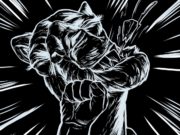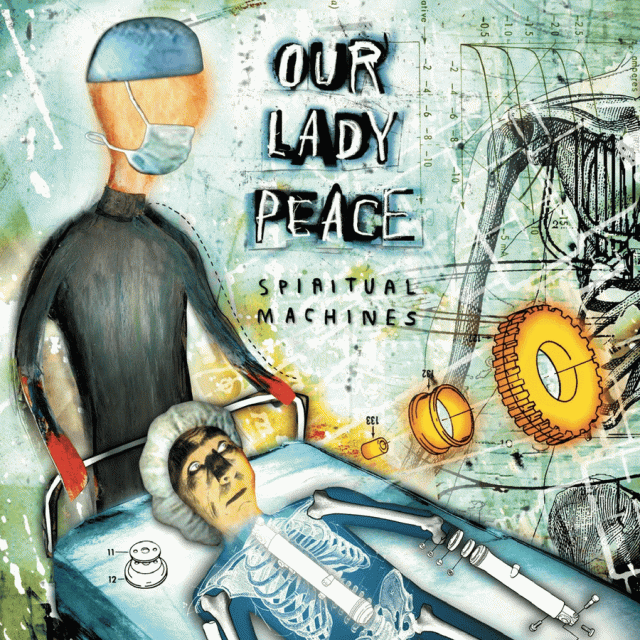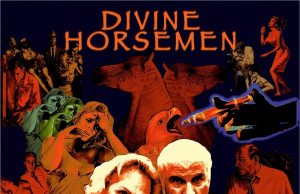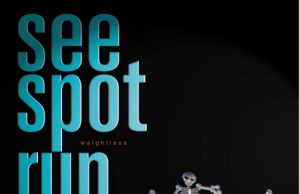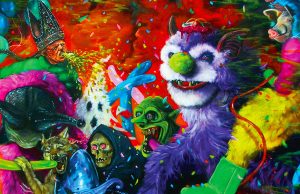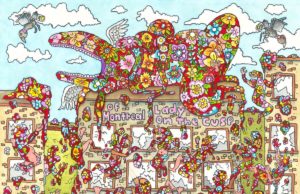Two decades ago, new albums from Our Lady Peace, Roger Waters, Buckethead and others were spinning away in my portable CD player. Here’s what I had to say about them back then (with some minor editing):
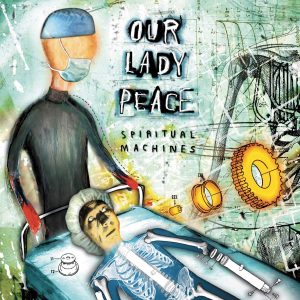 Our Lady Peace
Our Lady Peace
Spiritual Machines
If there’s anything harder than turning a great book into a movie, it’s gotta be turning that book into a rock album. Over the years, plenty have tried and failed. Anthrax penned hamfisted heavy metal inspired by Stephen King stories. Rush crafted existential epics based on Ayn Rand’s turgid tales. Rick Wakeman turned 1984 and Journey to the Centre of the Earth into so much prog-rock synth-cheese goop.
The latest misguided addition that list comes from Canada’s own Our Lady Peace. Up until now these four lads have been just another fairly standard, essentially harmless post-grunge outfit — more guys with trendy facial hair and an obvious jones for the whole Nirvana / Smashing Pumpkins / Soundgarden / Radiohead school of crunchy guitars, angsty vocals and dark, thumping rhythms. They weren’t the best band in the world, but they weren’t really bothering anybody.
Then they went and read a book. To be specific, The Age of Spiritual Machines: When Computers Exceed Human Intelligence by Raymond Kurzweil, an American inventor whose creations include high-tech synthesizers, speech and reading devices. Kurzweil’s 1999 book ostensibly uses current data and trends to generate predictions about the future of man and machines, with the usual stuff about electronic chips and mechanical parts implanted into humans and computers that develop free will and how all that will alter our perception and definition of humanity.
The boys were so taken with Kurzweil’s tome it became the inspiration for their fourth album, the followup album to last year’s well-received Happiness … Is Not a Fish That You Can Catch. And we have to admit, they obviously put a lot into the project. They wrote a thematically unified set of bleak, semi-futuristic songs about man, machines and man-machines. They adapted (evolved?) their musical style, reining in performances to reflect the controlled remoteness of their dystopian subject matter. They even got Kurzweil to read selections from his book between the tracks. And they’ve produced what has to be the most high-concept, ambitious and experimental album of their careers.
But despite all that, Spiritual Machines just doesn’t work. The biggest problem? The big “concept” behind this concept album — the integration of humans and technology — isn’t exactly unexplored terrain in rock ’n’ roll. Fact is, it’s been done to death over the decades: The Man-Machine electronica of Kraftwerk, the new wave robotics of Devo and Gary Numan, the Mechanical Animals goth-slam of Marilyn Manson, and, most recently and successfully, the OK Computer and Kid A post-rock of Radiohead. Next to those latter two albums especially, Spiritual Machines seems like one of those failed clones from the last Alien movie.
Actually, make that several of those clones. Many — too many — of Spiritual Machines’ 15 songs are virtually indistinguishable from each other, all loping, mid-tempo grooves and sparse drumbeats and tense adenoidal vocals and vibrating metallic guitars. Maybe it’s because they tried too hard to make all these songs fit into the same musical theme. Or maybe it’s singer Raine Maida’s inexperience as co-producer, a chair he occupies here for the first time next to long-time collaborator Arnold Lanni. Whatever the case, it makes Spiritual Machines an even tougher slog than it needs to be at times.
It’s too bad. We really wanted to like this album. Like we said, it’s obvious the boys really put a lot into it. And we have to give them points for effort. Next time, though, we hope they pick a better book — or better yet, write a tale of their own.
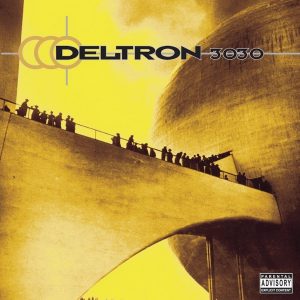 Deltron 3030
Deltron 3030
Deltron 3030
Call it The Automator Strikes Back. San Francisco’s whacked-out hip-hoptronic genius Dan (The Automator) Nakamura — the composer/producer who helped bring you Dr. Octagon, Handsome Boy Modelling School and Bombay the Hard Way — is back with another platter of sci-fi high-concept trippiness. On Deltron 3030, the erstwhile partner of rap headcase Kool Keith teams up with like-minded looney linguist Del Tha Funkee Homosapien and Canadian scratchmaster Kid Koala to explore another nether world of futuristic dystopian dysfunction. Del supplies the enthusiastic techno-babble (“Upgrade your grey matter; one day it may matter”), Koala handles the turntable trickery with his usual deft touch, and Dan, as always, fashions loose-limbed, loping hip-hop tracks that put plenty of bump ’n’ bounce beneath the twisted tones. Guests at this costume party include Blur’s Damon Albarn and even Crash Test Dummy Brad Roberts, reading a TV guide listing of Strange Brew (no, really). It isn’t as magical as Automator’s work with Keith, but Deltron’s plenty cool nonetheless.
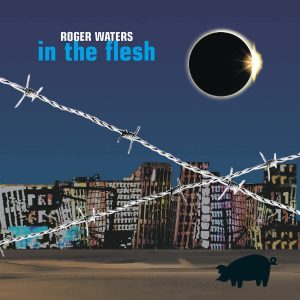 Roger Waters
Roger Waters
In the Flesh
I always presumed it would be a cold day in hell before Roger Waters lightened up. Well, throw another corporate lawyer on the fire, Satan, ’cos Mr. Glum has finally cracked a smile. The man who wrote The Wall, perhaps the ultimate bitter anti-rock star tract, has mellowed to the point that he spends most of the liner notes in this live disc holding forth on his newfound appreciation for his audience and for performing. No kidding. And damned if the crusty old bugger doesn’t even sound like he’s enjoying himself on this lengthy two-CD set, which documents his finest moments both in the Pink (Money, Another Brick in the Wall Part 2, Pigs on the Wing, Wish You Were Here, Comfortably Numb) and out of it (Pros and Cons of Hitch Hiking, Amused to Death). This 150-minute affair is by no means the best Floyd-related live disc on the market right now — that would be the recently unearthed Wall Live set. Still, we all should enjoy Waters’ good mood while it lasts.
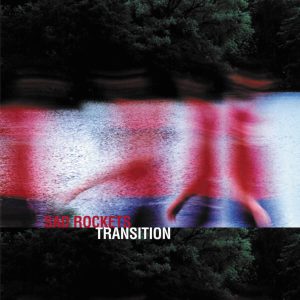 Sad Rockets
Sad Rockets
Transition
If you want something done right, do it yourself. That’s a message Sad Rockets mastermind Andrew Pekler has apparently taken to heart. Uzbekistan-born, California-raised and Berlin-based, Pekler is a multi-instrumentalist who manages to sound like a full band on his solo CDs. And a pretty funkadelic ensemble at that. On Transition, he gets down with his bad self in his lo-fi backroom studio, rolling distorto drum beats, off-kilter effects and wickedly superfly Moog and Hammond organ lines into mind-blowing hits of blaxploitation funk from beyond the planet MMW. It might not be brain surgery, but it’s rocket science without a doubt.
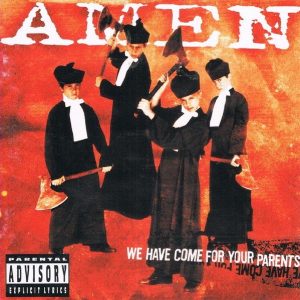 Amen
Amen
We Have Come for Your Parents
Since 90 per cent of the bands out there these days seem to be rap-rock or nu-metal clones, I have to admit I wasn’t expecting much from L.A.’s Amen. Thankfully, they defied my expectations — and then some — on this sophomore CD. Featuring two ex-Snots and a former Ugly Kid Joe and led by ballistic bellower Casey Chaos, Amen sidestep the usual rhythm-’n’-rhyme pitfalls and dance a dangerously demented jig in a minefield of punk-rock nostalgia. The band bang and scrape like kids who grew up listening to The Stooges and everybody on the SST label, while Chaos pushes societal buttons even Marilyn Manson can’t reach in a voice that can turn from a Rollins bark to a Biafra warble on a dime bag. You gotta say Amen to that, brother.
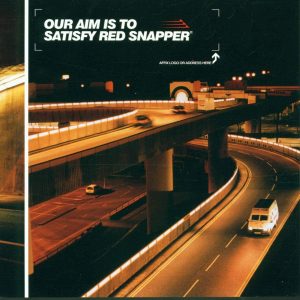 Red Snapper
Red Snapper
Our Aim is to Satisfy
In hip-hop and electronica these days, live is where it’s at. After years of turntable technique and sample manipulation, outfits that have basically existed as studio constructs — Herbaliser is one name that leaps to mind — are touring and recording with actual musicians to re-establish their credibility as performers. You could include London’s Red Snapper in this list, as long as you put them at the head of it. This mega-talented acid-jazz trio of standup bass, guitar and drums have always been a formidable live act, displaying more chops than a pork-only deli. On their third disc Our Aim is to Satisfy, they take their big guns downtown again, using their razor-sharp technique to carve out deep, richly funky grooves that have ample space for all the trip-hop, electronica, jazz, reggae and dub elements they dump in by the shovelful — not to mention the goofy computer vocals, which either carve up or repeat phrases until they reach mantra-like meaninglessness. Back in England, they coined a name for this in-your-face, uncompromising sound: F— Off Jazz. Spot on.
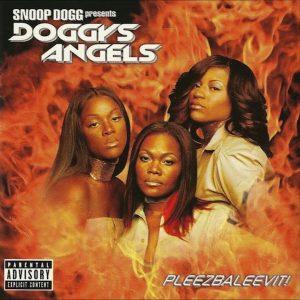 Doggys Angels
Doggys Angels
Pleezbaleevit!
You can’t be a true ghetto superstar until you have a bevy of beauties behind you. Prince crowned Vanity 6, Rick James rolled out his Mary Jane Girls and George Clinton created The Brides of Funkenstein. Now, pothead pitbull Snoop Dogg has unleashed his own trio of temptresses — Doggys Angels, aka Kola, Chan and Coniyac. Actually, unleashed is an overstatement. On this debut disc, Snoop basically takes the trio for a walk. Just like he did with previous proteges The Eastsidaz, Snoop steals his own act’s thunder by guesting on half the tracks. Then again, maybe that’s for the best. Without his presence, these gals are all bark and no bite, specializing in the same sort of tired, gangsta-bitch rhymes that Eve, Lil Kim and Da Brat long ago marked as their territory. If you’re a Snoop fan, you might get a kick out of it. But pick it up while you can; something tells us Doggys Angels will be heading to hip-hop heaven before long.
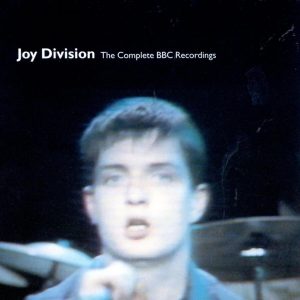
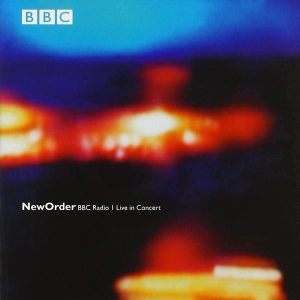 Joy Division
Joy Division
The Complete BBC Recordings
New Order
BBC Radio Live in Concert
Few bands made such an impact in such a small span of time as post-punk pioneers Joy Division, who issued one massively acclaimed album before troubled singer Ian Curtis hanged himself on the eve of the band’s first U.S. tour in 1980. Fewer bands can manage to survive that sort of tragedy and regroup into a new outfit that becomes even more successful, as the rest of Joy Division achieved by forming the dance-influenced new wave outfit New Order. And even fewer bands can be formidable live outfits on top of all that. But both these outfits were, judging by these two collections of BBC Radio recordings. Joy Division’s 10 tracks, recorded at the beginning and end of 1979, show the band rapidly progressing from the angular amateurism and four-square thumping of Exercise One and Insight to the elaborate lead-bass lines and dark melodicism of Love Will Tear us Apart. Most of these tracks have been available before, but if you don’t already have them, now’s the time. Likewise for New Order’s reissued BBC Radio Live in Concert, a recording of their performance at the U.K.’s massive Glastonbury Festival in 1987. By this time, the synth-heavy quartet — Joy Division’s three surviving members augmented by a keyboard player — had moved beyond their Stooges and Velvets roots to become one of the U.K.’s top new wave outfits, thanks to hits such as Bizzare Love Triangle and Blue Monday. This set finds them treading the line between neo-disco sophistication and punky messiness as they bulldoze through a nine-song set that includes a nod to their forebears with a white-hot version of VU’s Sister Ray. Hear these bands again for the first time.
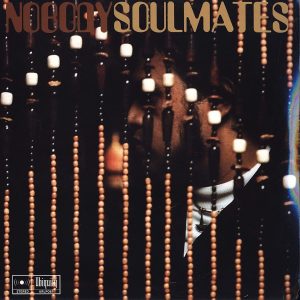 Nobody
Nobody
Soulmates
Who can weave together trancy trip-hop grooves, frosty string lines, scratchy loops and crazy samples, Latin percussion, backwards tape effects, squishy synthesizers and smooth soul raps into a post-psychedelic, post-modern, post-everything dreamscape of late-night, chill-out room perfection? Nobody? You got that right. And so does this L.A. college radio music director, who steps to the other side of the microphone with this free-wheeling debut, which grew from a homemade mixtape to this widescreen canvas of technicolour ambience and sonic exploration. There are plenty of basement-DJ geniuses out there these days, but Nobody does it better.
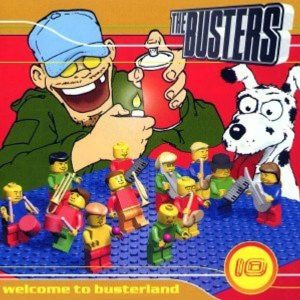 The Busters
The Busters
Welcome to Busterland
Why is it that Europeans produce some of the best ska around? Take The Busters, a 12-member, horn-driven group from Weisloch, Germany. On their 10th album Welcome to Busterland, they skank and jump with all the hopped-up vim and vigour of second-wave stars like Madness and Bad Manners. That is, when they aren’t rocking steady to the bluebeat riddims inspired by the legendary Prince Buster, the ska legend who presumably inspired their name. Lazy horn lines, shambling offbeat drums, lilting melodies, blustery ruffneck vocals and goofy lyrics preoccupied with fun, fun, fun, are all part of the landscape of Busterland. But the biggest attraction by far has got to be their skanking version of Queen’s We Are the Champions, a zippy novelty track that’s sure to help these hepcats make a Deutsch mark.
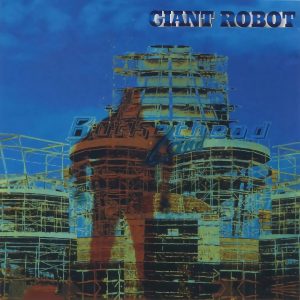 Buckethead
Buckethead
Giant Robot
“Buckethead’s this guy that was raised by chickens in a chicken coop and without the bucket on his head, he’s helpless.” So claims an anonymous voice by way of introduction on Giant Robot — and for all you know about mysterious avant-guitar whiz Buckethead, it could very well be true. A bizarre character who never reveals his name, hides behind a kabuki mask and sports a KFC barrel for a helmet (no, really), Buckethead forges an equally unique sound from P-Funkedelic grooves, shoddy sci-fi dialogue samples and the wickedest six-string shredding this side of Steve Vai. Giant Robot, a typically screwball, half-baked concept album likening him to Godzilla and featuring a guest list including Bootsy Collins, Bill Laswell and Iggy Pop, is in fact a 1994 album previously available only in Japan. But don’t let its age deter you — while it isn’t as cutting-edge as last year’s jaw-dropping Monsters and Robots (notice a theme here?), Giant Robot is still pretty freaking wondrous.









